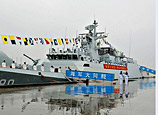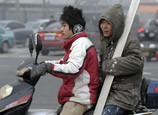
Xi also called on the two countries to make the best of the mechanisms of the China-U.S. Strategic and Economic Dialogue and the China-U.S. High-Level Consultation on People-to-People Exchange.
At present, China and the United States have agreed to make joint efforts in building a cooperative partnership and exploring ways to develop a new type of relationship between big powers.
But the two sides need to enhance their strategic mutual trust, which remains a pressing task.
When meeting with visiting U.S. Treasury Secretary Lew in March, President Xi urged the two countries to objectively view each other's development stages, respect each other's interests for further development and regard the other side's opportunity and challenges as its own.
Thomas Donilon, U.S. national security advisor, dismissed the idea of "confrontation" or "containment" existing between the two powers during a foreign policy speech at the Asia Society in March.
On the perception that the rise of a new power has often led to conflict with an established one, Donilon said this pattern does not necessarily apply to the U.S.-China relations, adding that Washington welcomes a peaceful and prosperous Beijing.
Jin, from the School of International Studies at Renmin University, said that the zero-sum game theory has led to intense clashes between established powers and emerging ones, and thus President Xi has proposed setting up a new type of relations between major powers.
The upcoming meeting between the top Chinese and U.S. leaders may provide a roadmap for establishing such a relationship, Jin added.
Ruan, from the China Institute of International Studies, stressed that the two nations need to respect each other's differences, saying that the two sides need to outline the prospects of the China-U.S. ties from a new perspective.


















 China’s weekly story
China’s weekly story
(2013.5.11-5.17)


![]()
